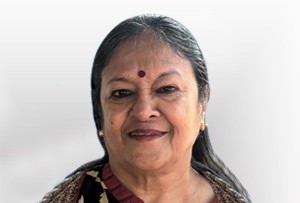Most of the times WhatsApp is a huge pain in the neck, and even more so, when people think it is okay to spam your WhatsApp with 20 or 30 messages late in the night, sending your phone buzzing relentlessly. But recently a forward from a friend on this medium made my day, and the content was so gripping and deeply moving, carrying such an invaluable life lesson, that I’d like to share it here. The delightful German writer Frank Kafka, who never married and had no children, once met a girl in a Berlin park; she was crying because she had lost her favourite doll. He helped her search for it, but unsuccessfully. He suggested they return the next day and search again; when they didn’t find it, he gave her a letter saying it was from the doll. It asked her not to cry, as she had gone on a trip to see the world. “I will write to you about my adventures,” she promised in the letter.

Thus began an endearing story; during their subsequent meetings in the park Kafka would read the little girl delightful letters from the doll describing all the wonderful adventures she was having and the girl found these stories adorable. One day Kafka bought a doll and gave it to the girl saying her doll had returned to Berlin. “It doesn’t look like my doll at all,” said the girl. Kafka handed her another letter in which the doll wrote: “My travels have changed me.” The little girl happily hugged the new doll and took her home.
A year later Kafka died. Many years later, the girl, now a woman, found a letter inside the doll. The tiny letter, signed by Kafka, had this mind-blowing note. “Everything you love will probably be lost, but in the end, love will return in another way.”
This story, and this month’s edit, is dedicated to all those Rotarians and their families, who have lost loved ones, either after battling long illnesses, due to tragic accidents, or sudden cardiac failure. The Covid pandemic has left a huge hole in our hearts… our families… by stealing one or more loved ones from us. Sometimes people had to cope with long-distance grief as the lockdown made travel to attend funeral impossible.
One of the most poetic expressions of long-distance grieving was penned down by the Nigerian writer Chimamanda Adichie, who was in the US when her father died due to a kidney disease in Africa in 2020, as the pandemic raged, and no flights were operating anywhere. We all know how special father-daughter relationships are, and unable to attend her father’s last rites, Adichie wrote a heartrending piece in the New Yorker magazine, giving this poignant and heart-wrenching expression to her pain. Just to quote a few lines… “Grief is a cruel kind of education. You learn how ungentle mourning can be, how full of anger. You learn how glib condolences can feel. You learn how much grief is about language, the failure of language and the grasping for language.”
Oh yes, even for the best of us, words fail at the most crucial time. But when a Kafka finds his words… as he did when he wrote for the little girl, “…but in the end, love will return in another way,” it becomes a bouquet of hope and comfort, like no other.
Rasheeda Bhagat





